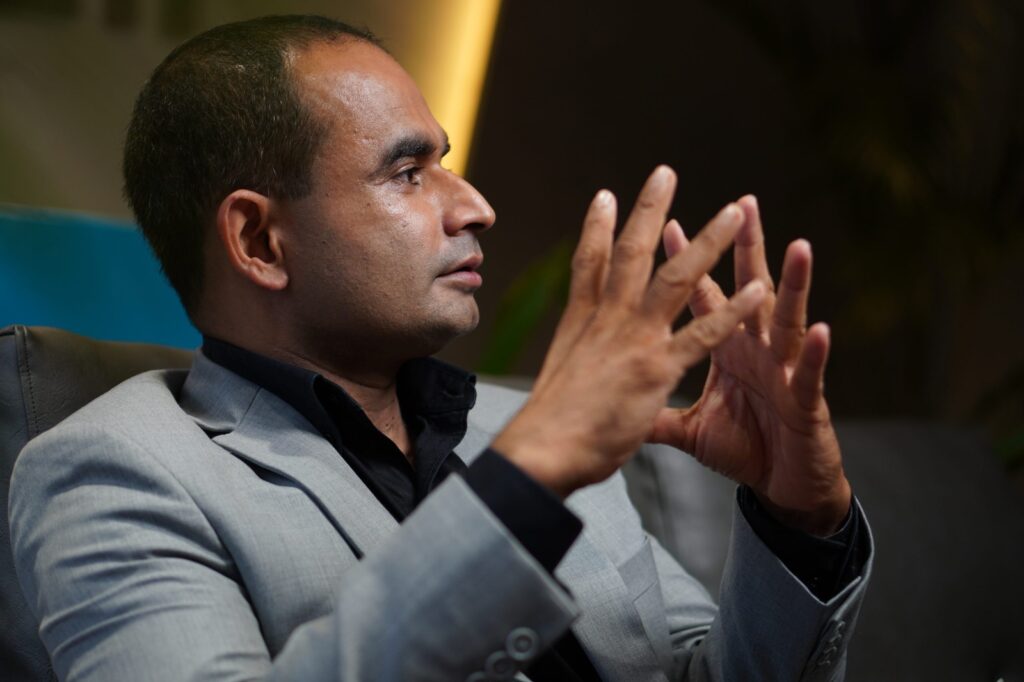The warning from MIT researchers was stark: people who rely on AI for writing tasks show reduced brain activity in key cognitive areas. That insight matters deeply for any CEO leading an AI-driven organization. When leaders hand over too much cognitive effort to machines, they risk losing the very edge that fuels innovation — curiosity, judgment, and creative problem-solving.
For most CEOs, this might sound like a concern. For Sabeer Nelli, founder and CEO of the AI-first fintech platform Zil Money, it was validation — a wake-up call that reinforced his long-held belief that automation is only as powerful as the human mind guiding it.
Sabeer’s leadership philosophy reflects this awareness. In his view, the real measure of AI success isn’t how much it automates but how much it challenges people to think sharper. His approach to AI leadership is simple: when technology takes over the easy tasks, leaders must push their minds harder — to stay engaged, curious, and creative.
The Cognitive Load Management Challenge
The irony of Sabeer’s position isn’t lost on him. As the CEO of an AI-first fintech platform that has processed over $100 billion in transactions and empowers more than a million businesses, he leads one of the most automation-driven companies in financial technology. Yet his approach remains deeply human. At Zil Money, AI is not a crutch — it is a creative amplifier. The technology handles repetitive, time-consuming tasks, freeing people to think deeper, imagine broader, and innovate faster.
This philosophy defines Zil Money’s internal architecture. Sabeer encourages what he calls “cognitive checkpoints” — deliberate moments designed to keep human intelligence actively engaged within automated systems. Teams are encouraged to question AI outputs, refine insights, and contribute original thinking before final execution.
Thoughtful Prompts Equal Thoughtful Output
For Sabeer Nelli, the power of AI lies not in automation but in articulation. He believes the quality of an AI system’s output is only as strong as the thought behind its input. Within Zil Money, prompting is not treated as a mechanical task; it is considered a cognitive skill.
This mindset has become a cornerstone of Zil Money’s AI culture. Teams are encouraged to approach every AI interaction as a dialogue of ideas, not instructions. Whether developing new payment intelligence models or automating backend operations, employees are trained to craft thoughtful prompts — rooted in logic, creativity, and intent.
The result is AI that performs efficiently and evolves intelligently alongside its human counterparts. For Sabeer, prompting represents the new literacy in the age of intelligent systems — a bridge between human reasoning and machine precision that shapes how innovation truly happens.
The Authenticity Test
Sabeer approaches authenticity as the defining line between meaningful innovation and mechanical output. In his view, when technology begins speaking for humans instead of with them, trust erodes — and in financial services, trust is everything. For him, authenticity is not a matter of tone or branding; it is a core business principle.
At Zil Money, this belief shapes how AI and humans work together. Intelligent systems handle data, drafts, and insights, but customer care remains entirely human-led. Every response reflects empathy, context, and genuine understanding — qualities that cannot be automated.
This philosophy drives what Sabeer calls the “authenticity test.” Before any communication reaches a customer, teams assess whether it sounds like a human who truly understands the problem. It is a safeguard ensuring that AI enhances communication while people preserve what matters most — authentic human connection.
The Future of Thinking
Sabeer sees the next era of AI not as a race to automate but as a test of mental endurance. As systems grow faster, more predictive, and seemingly self-sufficient, he believes leaders must become more intentional about how they think. His philosophy centers on building what he calls “cognitive resilience” — the ability to stay intellectually engaged even when machines can process faster and more efficiently.
At Zil Money, algorithms handle immense operational scale, but human oversight remains the compass. Every technological leap still demands a thinking mind behind it.
For Sabeer, the future will not belong to those who automate everything — it will belong to those who use AI with discipline and thoughtfulness, preserving human curiosity as their greatest competitive advantage.






